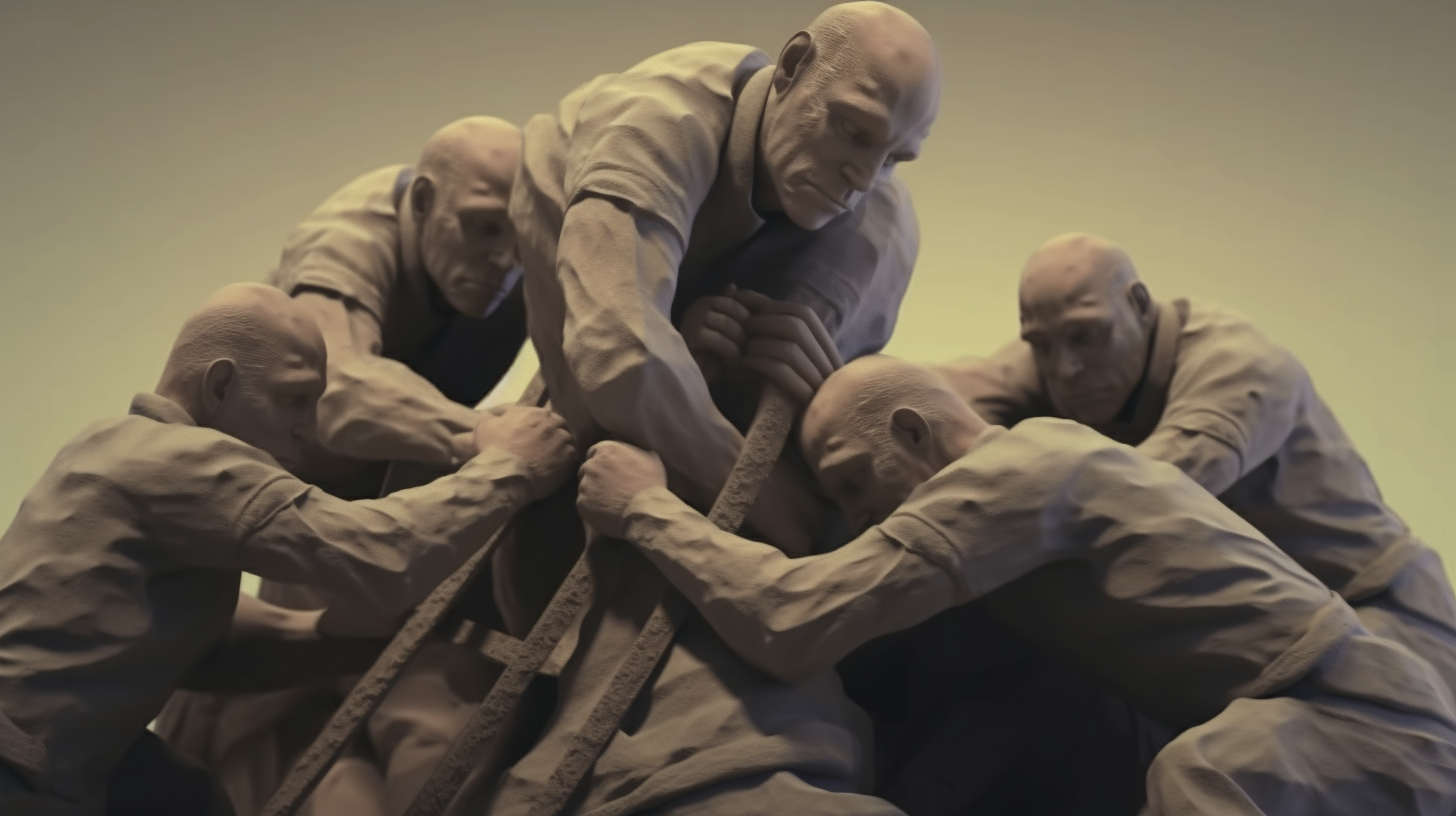In 2013, former Navy SEAL David Goggins decided to take on one of the most grueling endurance challenges in the world: the Badwater 135. This ultramarathon, spanning 135 miles through Death Valley in the peak of summer, is a true test of physical and mental fortitude. But Goggins didn't just finish the race; he placed fifth overall. Not because he was the fittest or fastest, but because he harnessed a powerful motivational force: his 'why-power' (his deep-seated purpose).
During the race, when asked how he was able to keep going despite the extreme heat and exhaustion, Goggins responded, "I don't stop when I'm tired. I stop when I'm done. My purpose is stronger than my pain."
This exemplifies a key concept: the power of 'why-power' over willpower.
Goggins could push through the pain and exhaustion because his purpose (his 'why') was compelling. His willpower was undoubtedly strong, but his 'why-power' drove him to finish the race.
To make this concept more tangible, consider a smoker trying to quit. If they rely solely on willpower, they may succumb to cravings during a stressful day. But if they connect their goal to a powerful 'why'—perhaps their desire to live a healthier life for their children—they'll have a much stronger defense against those cravings. Their 'why-power' fuels their determination and resilience.
This principle of 'why-power' goes beyond personal goals. It's a fundamental aspect of motivation and performance in various contexts, including organizations and leadership. Gary Keller, author of 'The One Thing', emphasizes the finite nature of willpower, advising to do the most important work early in the day before willpower diminishes. However, the scenario changes if we switch the lens to 'why-power'. 'Why-power', is not finite. It breaks down walls and increases performance through inspiration. It is about connecting choices to our desires and dreams, making those choices meaningful and powerful.
Consider different scenarios:
- A student studying for an exam
- An athlete training for a competition
- A team working on a project
In each case, willpower might initiate their efforts, but their 'why-power'—their deep understanding of why they're doing what they're doing—sustains their motivation and drives them to succeed.
Bringing it back to our initial case study of David Goggins, his 'why-power'—his purpose—propelled him through one of the world's toughest endurance races. His example illustrates the incredible potential of 'why-power' and how it can override even the most challenging obstacles.
As author Darren Hardy puts it, "Forget about willpower. It's time for why-power. Your choices are only meaningful when you connect them to your desires and dreams." This profound statement encapsulates the power of 'why', which can motivate us to push beyond our limits and achieve our greatest aspirations.
The key concept arising from this story is the power of 'why-power'—the intrinsic motivation and deep-seated reasons for wanting to make a change. It's about understanding the purpose behind your actions. Whereas willpower relies on sheer determination and often wanes over time, why-power taps into your personal values and goals, providing a more sustainable source of motivation.
The concept of why-power extends beyond personal health and fitness; it's applicable in any area of life that requires change or improvement. Whether it's pursuing a career, improving relationships, or cultivating new skills, understanding your 'why' can provide the motivation needed to persevere through challenges.
Applying why-power to different scenarios, we see its broad relevance. A student may find the motivation to study by focusing on their career aspirations rather than merely passing exams. An entrepreneur may overcome business hurdles by remembering why they started their business in the first place. A person trying to quit smoking may find the strength to resist cravings by focusing on their desire to live a healthier life for their family.
It's not about what you're doing or how hard you're trying. It's about why you're doing it. Understanding your 'why' can provide a powerful, enduring source of motivation that can guide you through the ups and downs of whatever path you choose.

